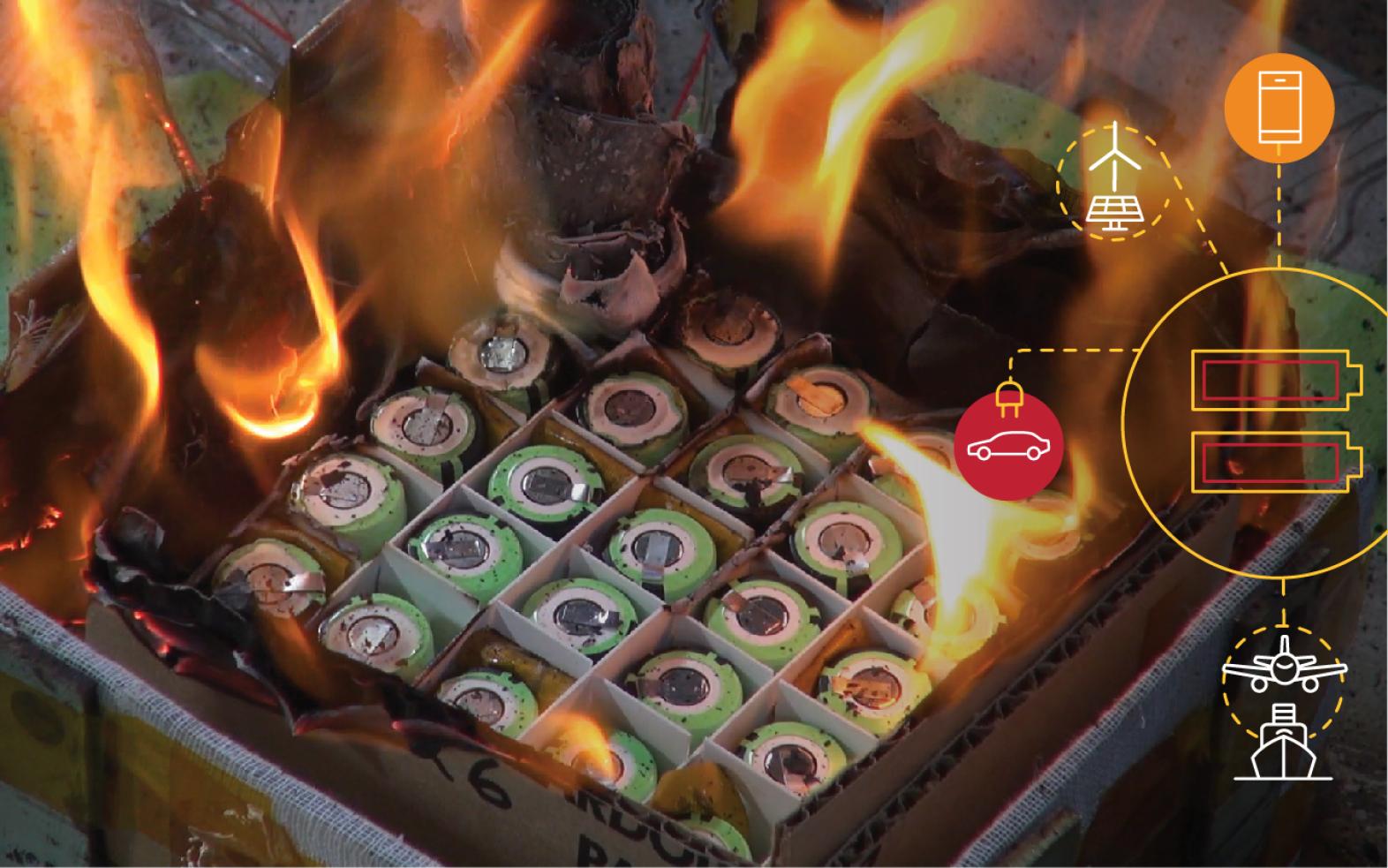In this age of clean and green energy initiatives, the global demand for batteries has been increasing at a significant rate. Batteries possessing greater energy and power are rapidly becoming indispensable, and this demand has accelerated the search for new materials and chemistries to power the next generation. While scientists and researchers enhance the performance of state-of-the-art lithium-ion batteries, they’re also looking to the future—towards groundbreaking technologies that will give rise to new kinds of batteries beyond lithium-ion.
The demand for advancements has brought renewed attention to the challenges underlying the quality and safety of batteries that people currently use. An uptick in lithium-ion battery safety incidents has not only increased scrutiny from regulators, it has also pointed out the urgent need for better safety regulations and testing standards. Understanding the science behind batteries will be critical in ensuring their safe performance and usage. In-depth research and testing can provide a holistic understanding into behavior in specific configurations and under relevant environmental conditions, which in turn can mitigate risk and provide a framework for developing reliable and safe batteries.
To facilitate collaboration and awareness, the Underwriters Laboratories’ electrochemical safety research team is hosting a series of Battery Safety Science webinars. These sessions provide a forum for knowledge sharing and contribute to the development of safer energy solutions. Subject matter experts, researchers and battery and energy storage professionals come together to share battery safety research and testing insights and exchange ideas.
Lithium-ion technology has widespread use in consumer products such as phones, laptops and medical devices, and now, highly sophisticated battery systems are transforming electric vehicles, spacecraft and marine transportation, as well as leading to the creation of stationary renewable energy storage systems. Correspondingly, universities, research institutions, government agencies and industries throughout the world are leading efforts to produce batteries both rich in quality and performance and with significantly reduced levels of risk.
The Battery Safety Science webinars enable individuals from a wide variety of organizations and institutions to discuss their findings and expertise. This is an exciting time to share scientific knowledge that advances society’s increased energy needs and makes the world a safer place.
Fast Facts
Visit the Initiative Updates tab to view recordings and presentations from the Battery Safety Science webinar series.
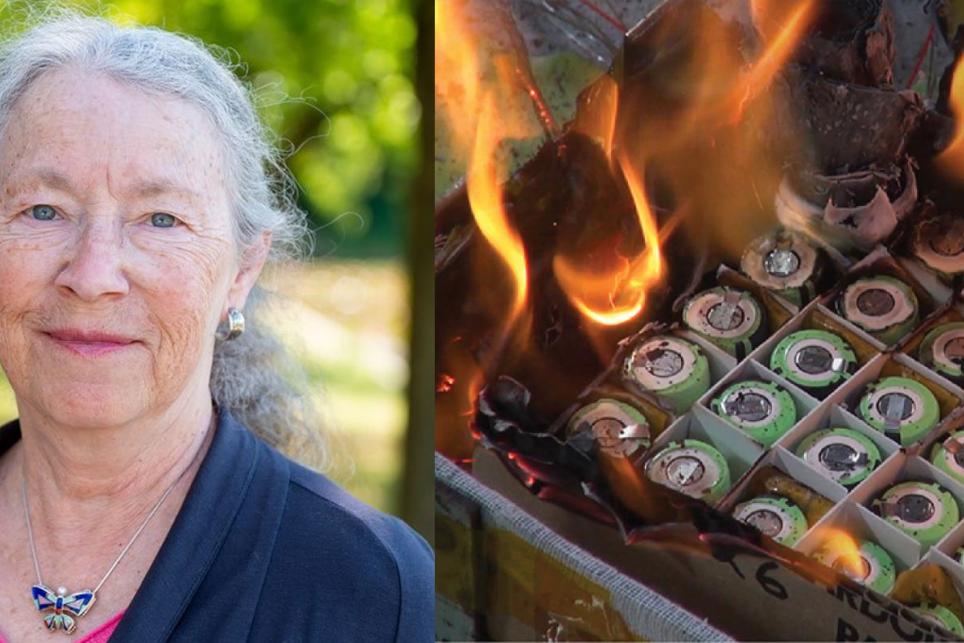
How Analysis Helps Guide Battery Recycling R&D at the ReCell Center
Linda Gaines is Chief Scientist of the new ReCell Center for Advanced Battery Recycling and a Transportation Systems Analyst at Argonne National Laboratory.

Multiphysics and Multiscale Modeling of Lithium-ion Battery Safety Issues
An organic overview of recent multiphysics and multiscale modeling of Li-ion battery issues from the atomic scale to pack level in the past few years.
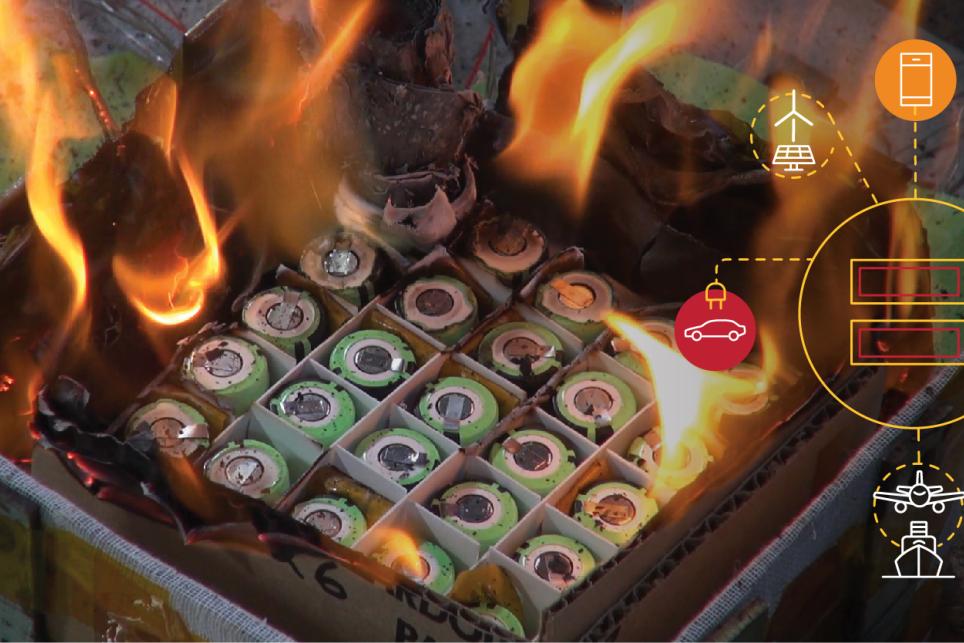
Fire Service Considerations – Investigation of AZ Li-ion ESS Incident
An overview of the incident, contributing factors, and recommendations for the fire service, code officials, utility companies, and manufacturers.
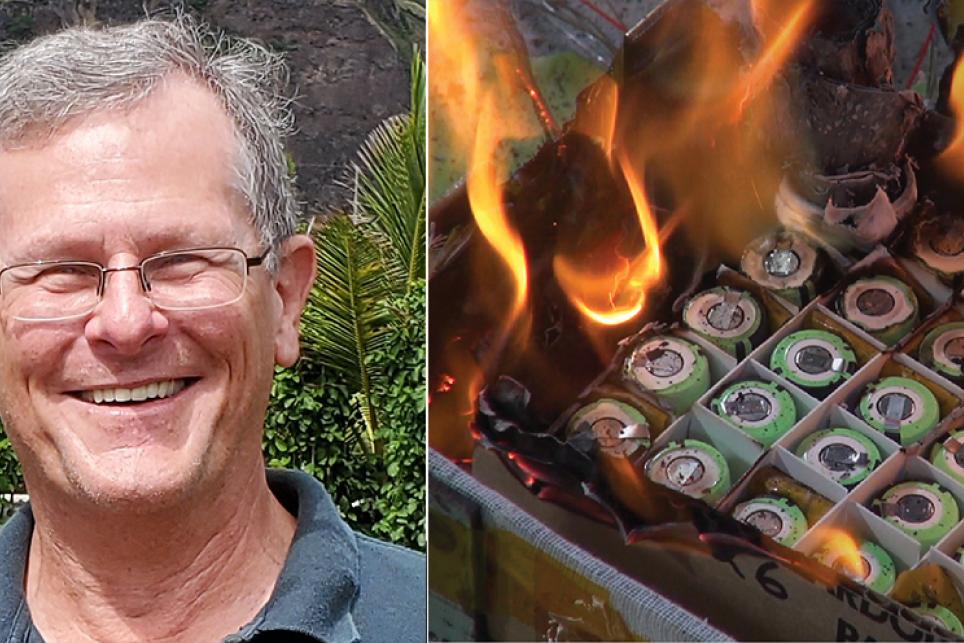
Electric Vehicle Fire Data and Concerns for First and Second Responders
HowitBroke.com Found Bob Swaim delivers insightful data on known failures in electric vehicles for fire data and concerns for first and second responders.
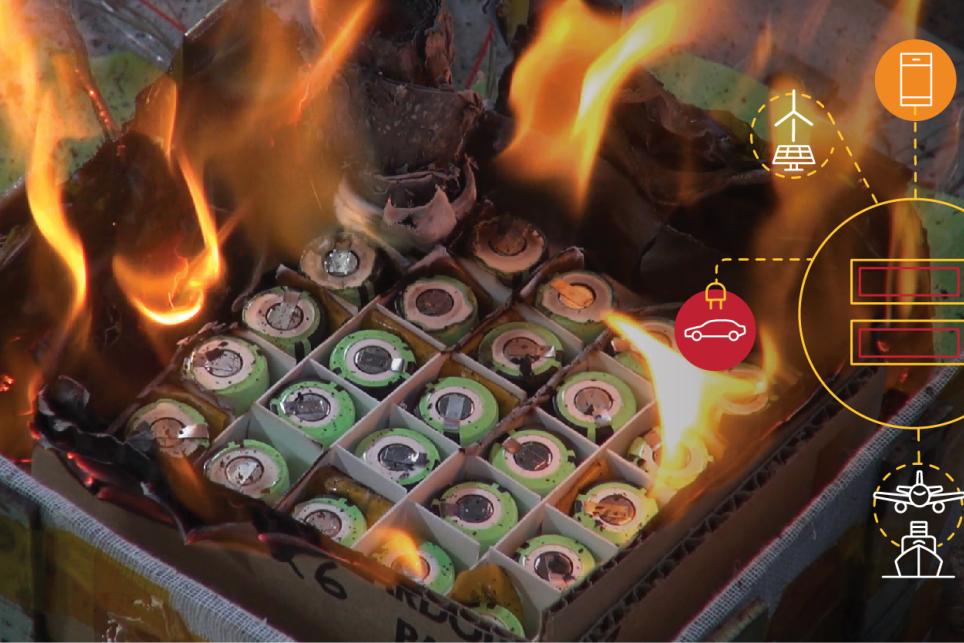
Including Batteries in Electric or Hybrid Car Crash Simulations
Senior developers Pierre and Iñaki of Electromagnetics (EM) solver LS-DYNA simulate a hybrid car crash.
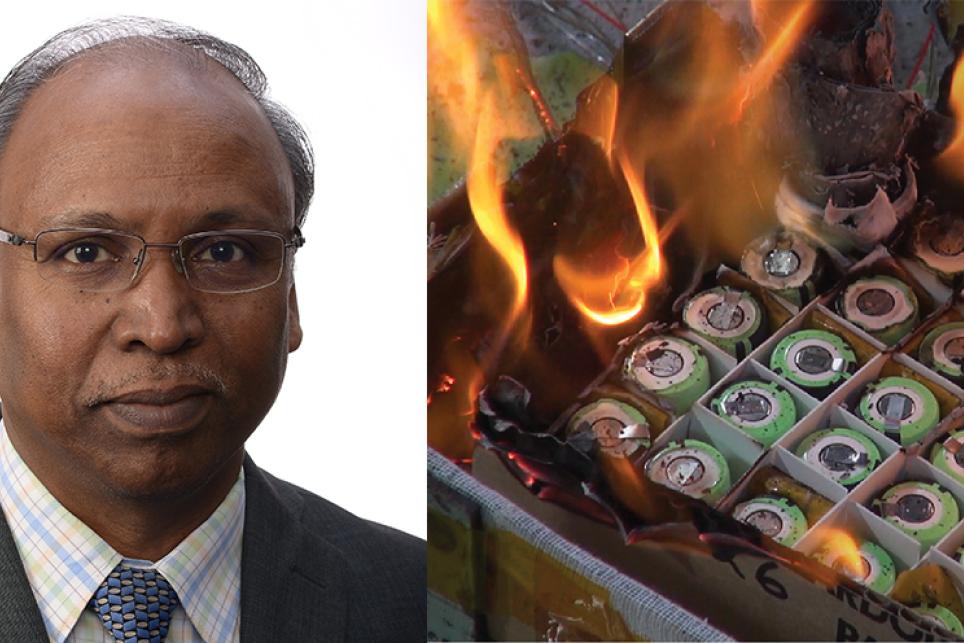
Sodium-ion Battery: From Materials to Cell Development
Dr. Palani Balaya, Associate Professor, Department of Mechanical Engineering for the National University of Singapore presented examples of commercial type Na-ion cells using polyanion and O3 type cathodes against hard carbon anode and non-flammable glyme-based electrolyte.
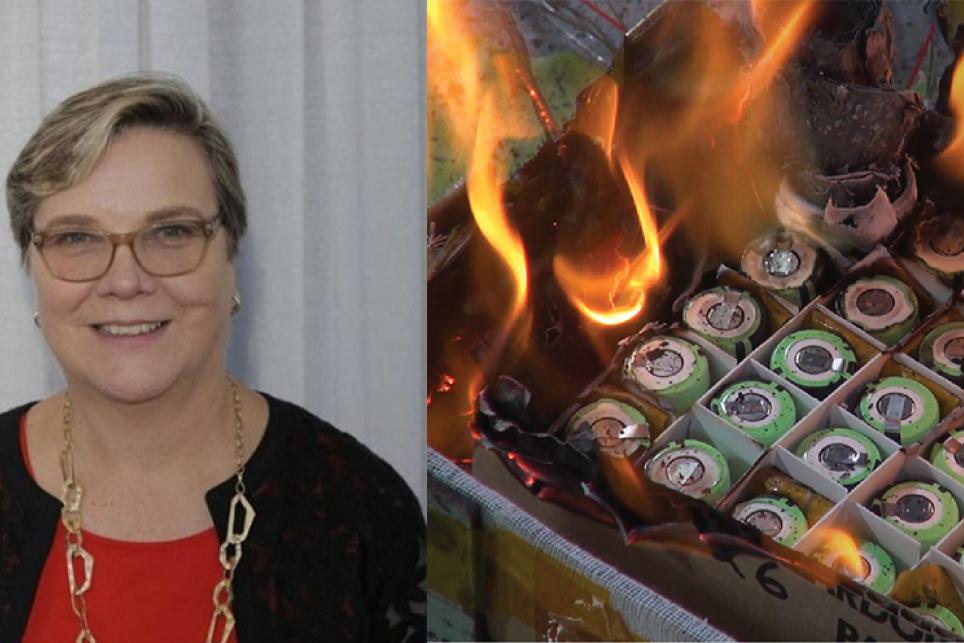
The Challenges of Ensuring Safety for Battery Energy Storage Systems
The webinar, hosted by Underwriters Laboratories on January 20, 2021, was presented by Laurie Florence, UL Corporate Fellow and UL’s Principal Engineer for stationary/motive batteries and energy storage systems.
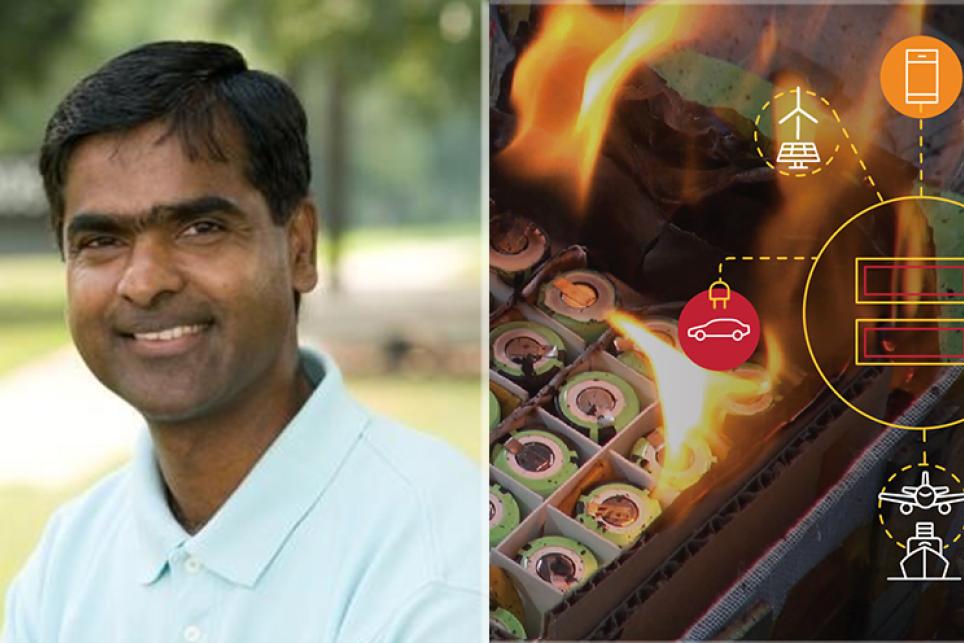
Fast Charging of Lithium-ion Cells: Pitfalls and Possibilities
The webinar, hosted by Underwriters Laboratories on December 4, 2020, was presented by Dr. Daniel Abraham, Senior Materials Scientist with Argonne National Laboratory.
